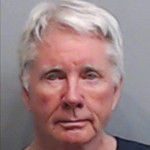After opening an office in Seattle late last year, Buchalter announces that Jeffrey G. Frank has joined the firm as managing shareholder of the new office, and Bradley P. Thoreson, and Doug Prince have both joined as shareholders. All join from Foster Pepper where they were partners. Sherman Helenese joined the Seattle office in November of last year. He was previously with Garvey, Schubert & Barer. Mitchell J. Olejko, a Shareholder in Buchalter’s Health Care Practice Group, now practices out of both the San Francisco and Seattle offices.
“The decision to open an office in Seattle was a natural one as the city’s technology, financial services, real estate, and construction industries are all thriving. We are thrilled to welcome Jeff, Brad, Doug, and Sherman to the firm,” said Adam J. Bass, President and Chief Executive Officer of Buchalter. “We anticipate and look forward to further increasing our presence in Seattle in the near future.”
Frank has practiced in the areas of commercial, construction, and real estate litigation for more than 30 years. Frank is currently a Board Member of the Foundation for Washington State Courts King County Bar Foundation and serves on the Board of Trustees and as an Officer of the King County Bar Foundation. He earned his J.D. from Seattle University School of Law.
“Buchalter is very well-established in the California market, and I’m excited for the opportunity to expand the Firm’s footprint to Seattle as we counsel businesses in the State of Washington on increasingly complex corporate, finance, and real estate matters,” said Frank. “In addition to the opportunity to lead Buchalter’s expansion outside the States of California and Arizona, I was drawn to Buchalter because of its focus on client service.”
Thoreson concentrates his practice on complex commercial litigation representing both plaintiffs and defendants in a wide variety of contractual business and real estate disputes. During his 30 years of practice, Thoreson has successfully tried more than 40 cases to verdict, both in state and federal courts. Active in community philanthropy, Thoreson currently serves on the Board of Trustees of Seattle Pacific University and the Board of Governors for the Washington Athletic Club, where he is also a member of the 101 Club. In addition, he recently completed a two-year term as Board Chair of the Corporate Board of Directors for the Boys & Girls Clubs of King County. Thoreson earned his undergraduate degree from Seattle Pacific University, where he played basketball, and received his J.D. from Seattle University School of Law.
“Given the depth and breadth of Buchalter’s expertise in the areas where I practice, joining Buchalter presents an incredible opportunity for me and my clients. As a result, I could not be more pleased to help launch Buchalter into this market. For me, my practice and my clients, the firm and its culture is the perfect fit,” said Thoreson.
Prince has over 35 years of experience in asset based lending. He is admitted to practice in both Washington and Oregon. Prince is a current Board Member of Impact Capital and Mary’s Place and serves on the executive committee of both boards. He earned his J.D. from Stanford University Law School.
Helenese’s practice focuses on complex intellectual property and technology transactions, privacy and data security. He represents clients ranging from emerging growth to public corporations in the technology, retail, advertising, transportation, consumer products, and professional services industries. Helenese earned his J.D. from the University of Utah, SJ Quinney College of Law, his M.B.A. from Seattle Pacific University, his M.A. from the University of Southern Maine, and his B.A. from Colby College.


